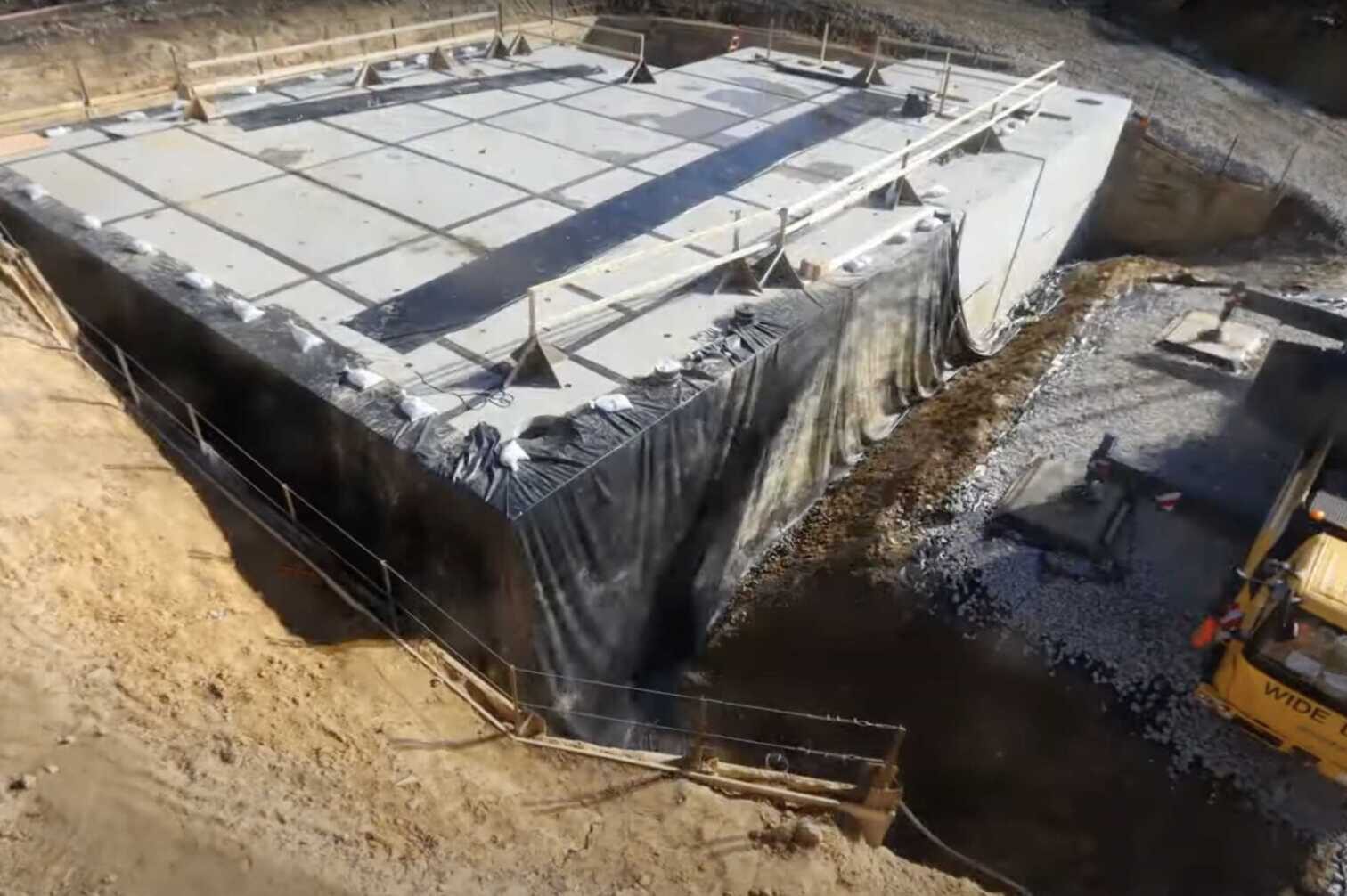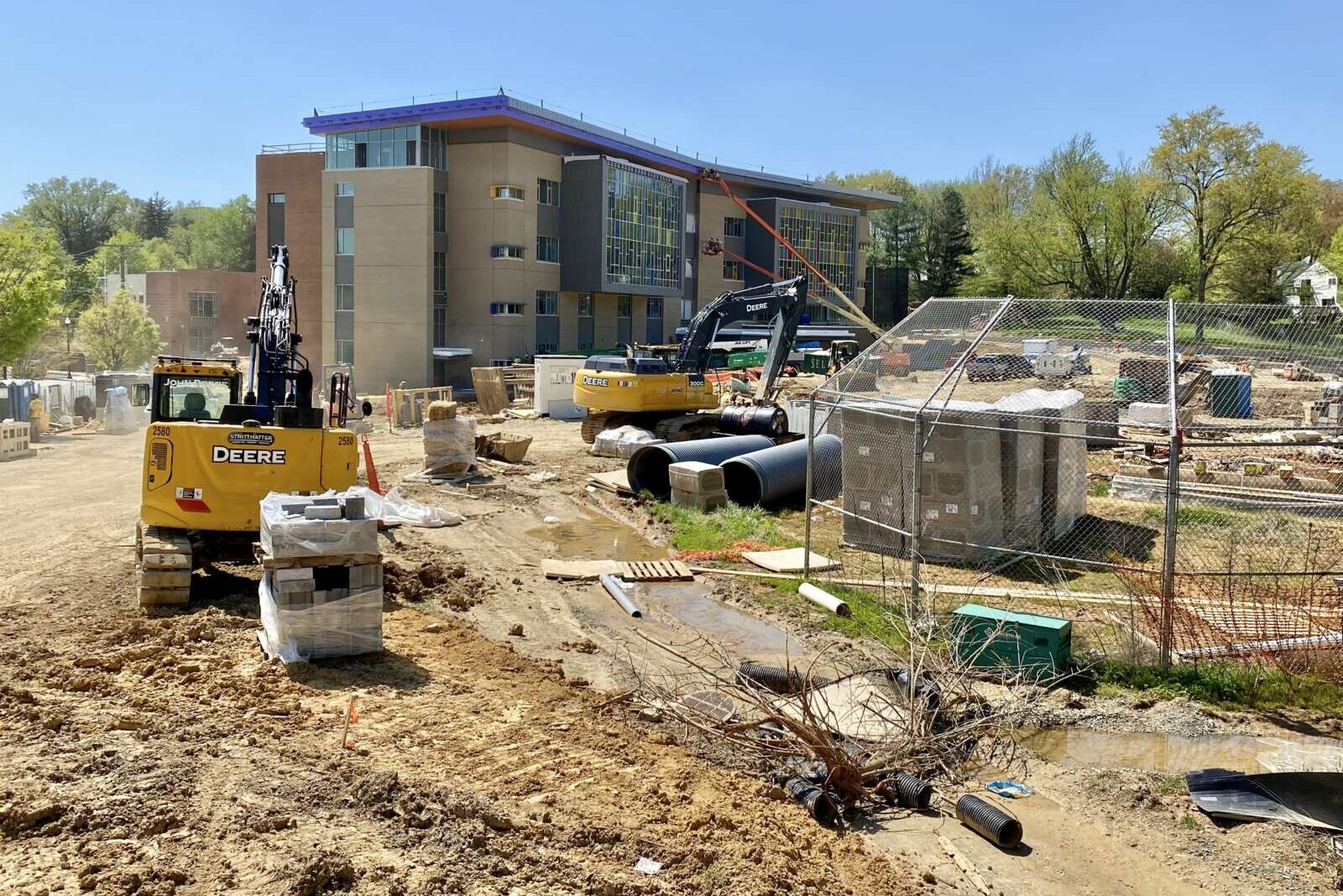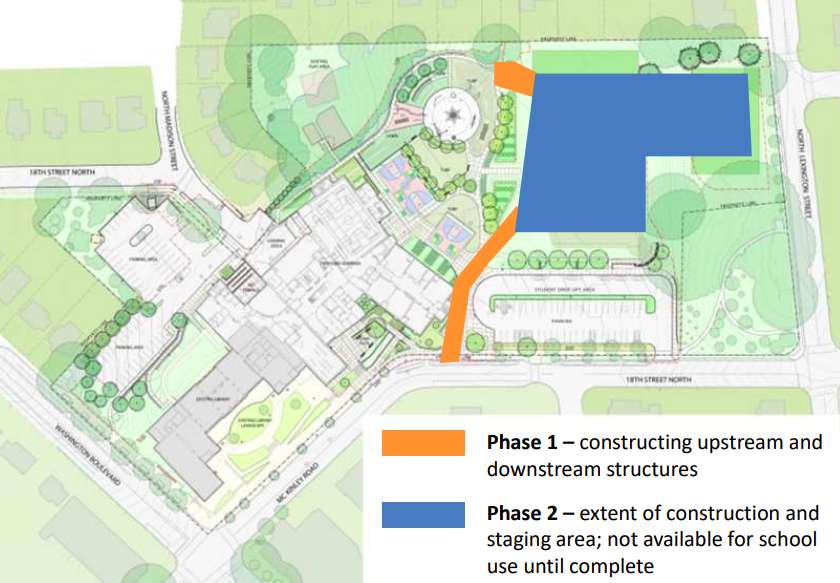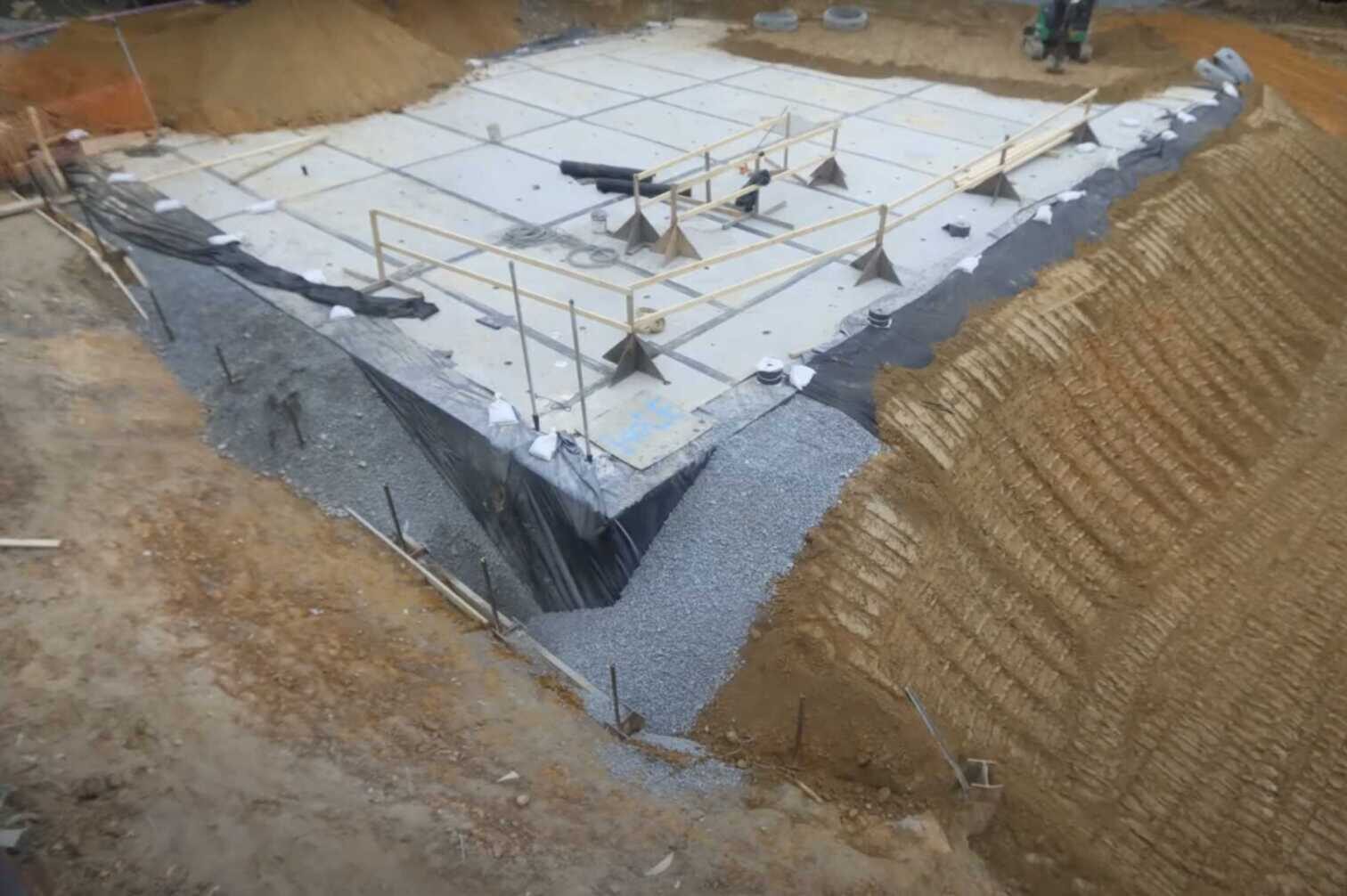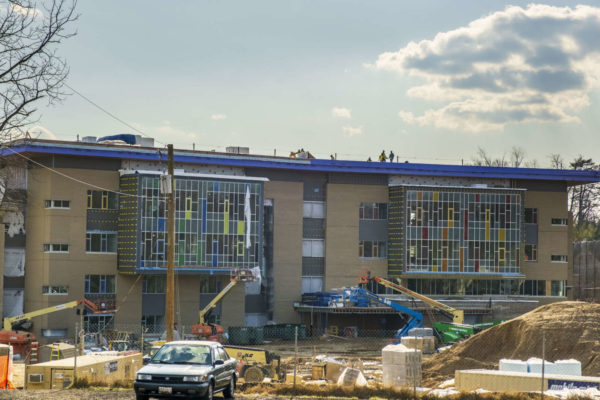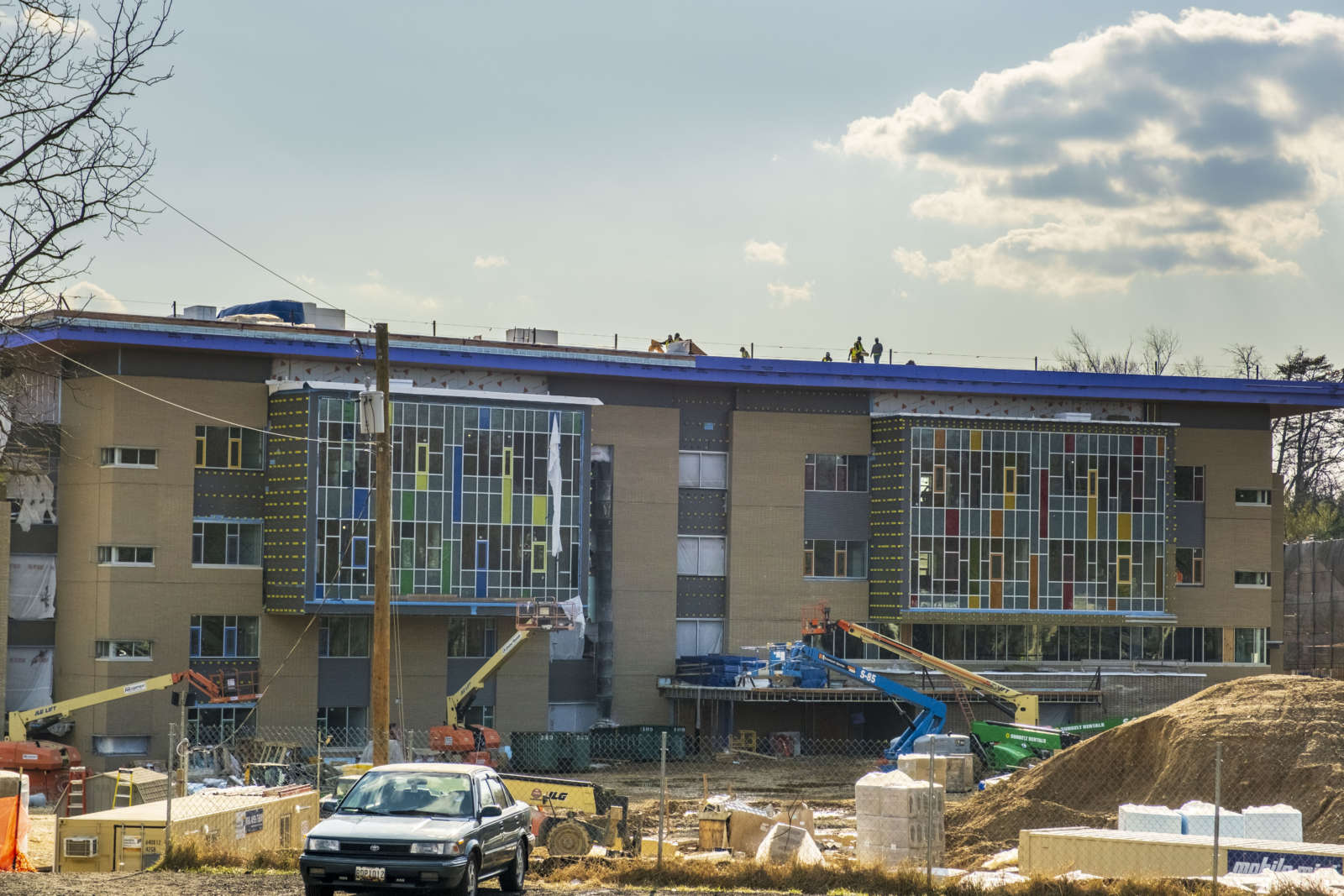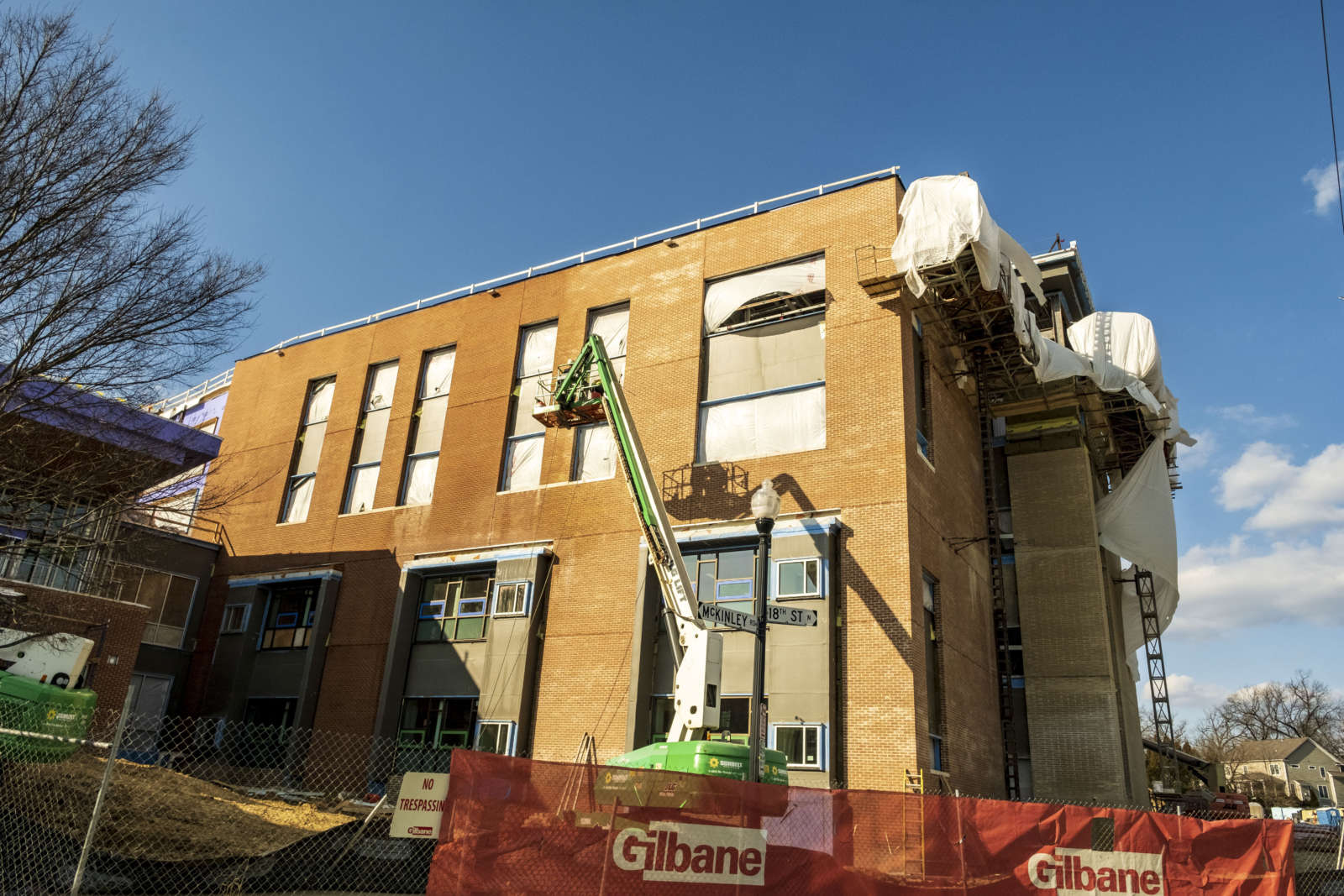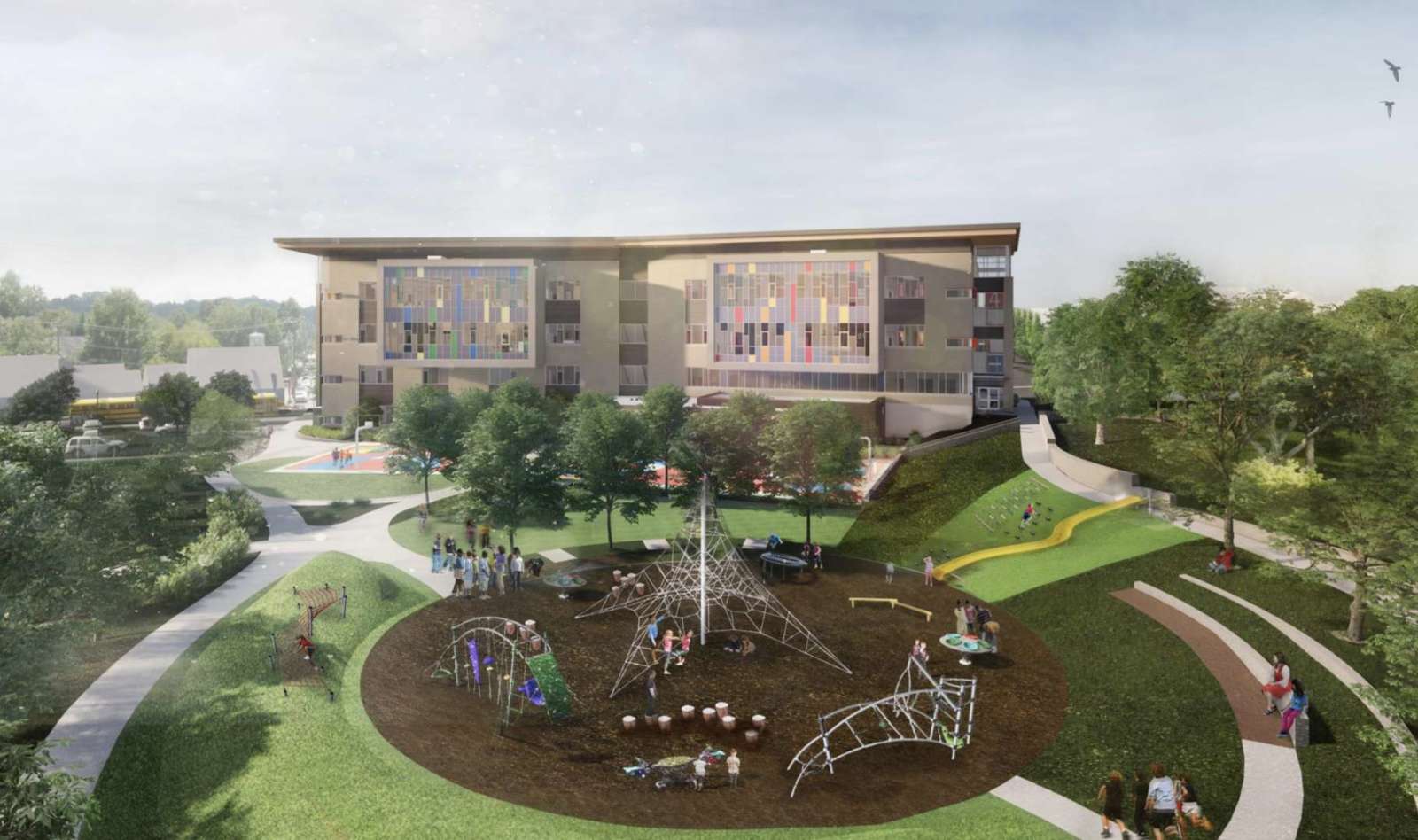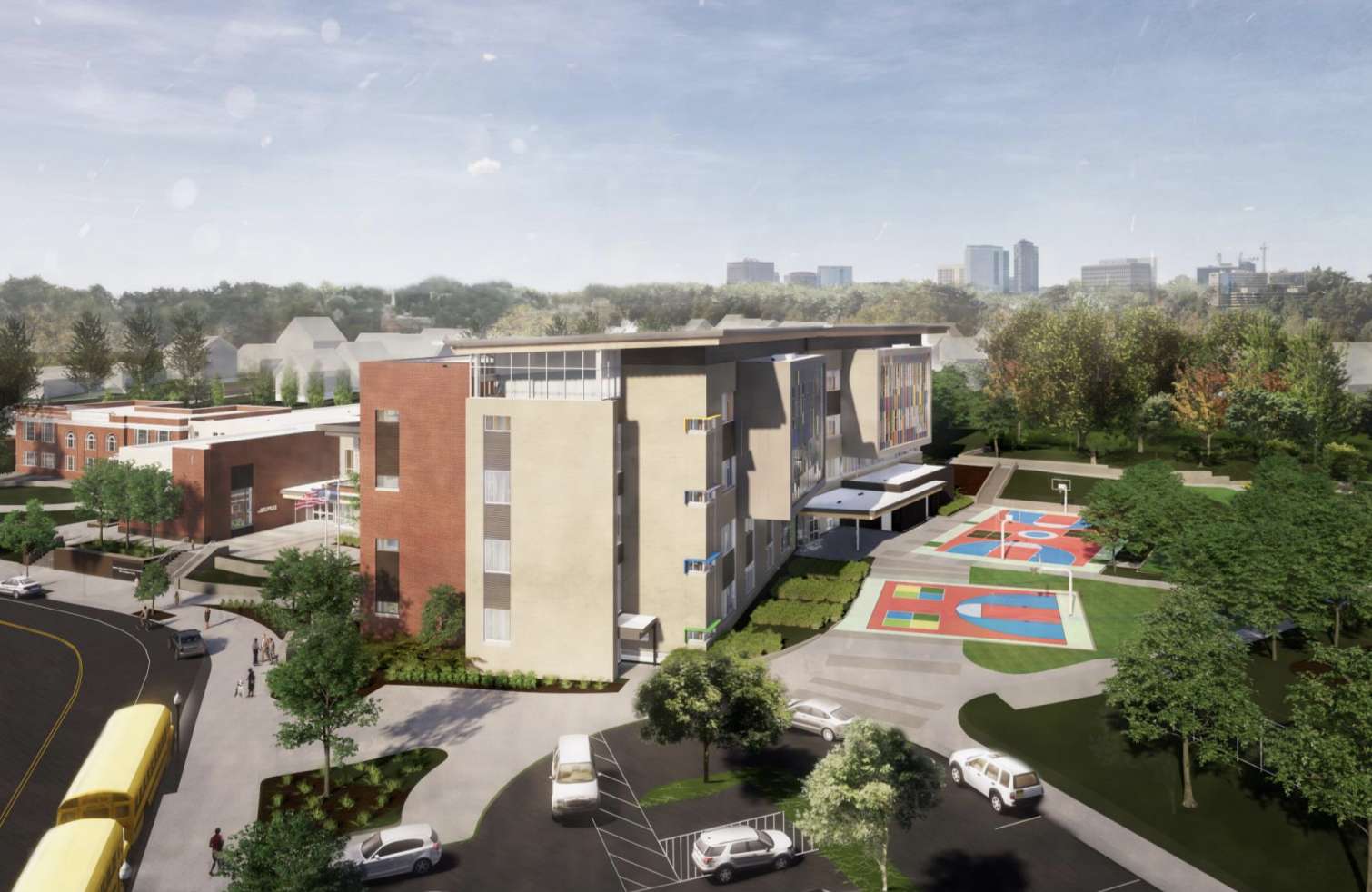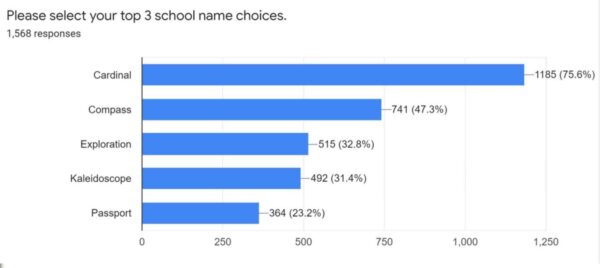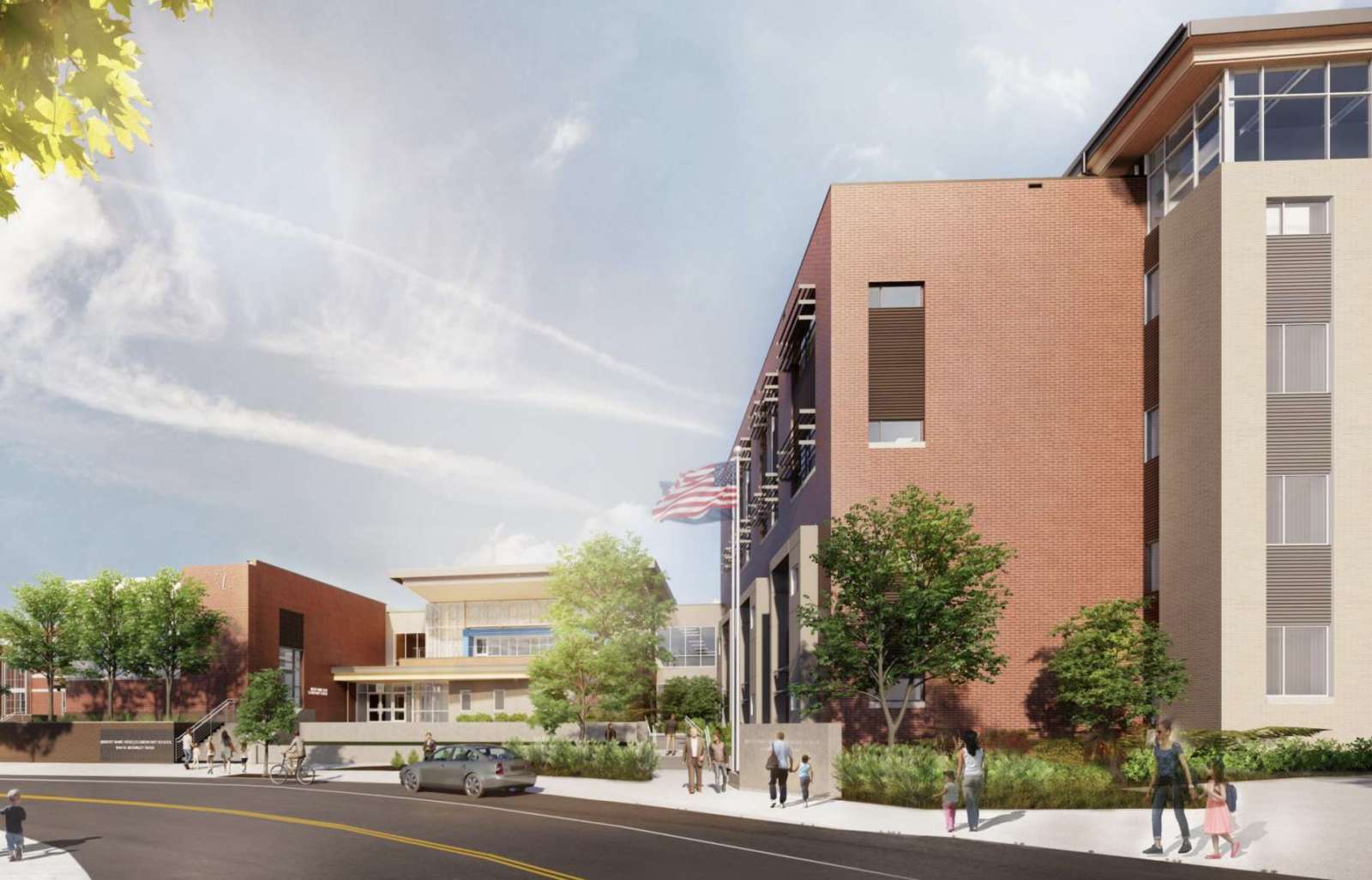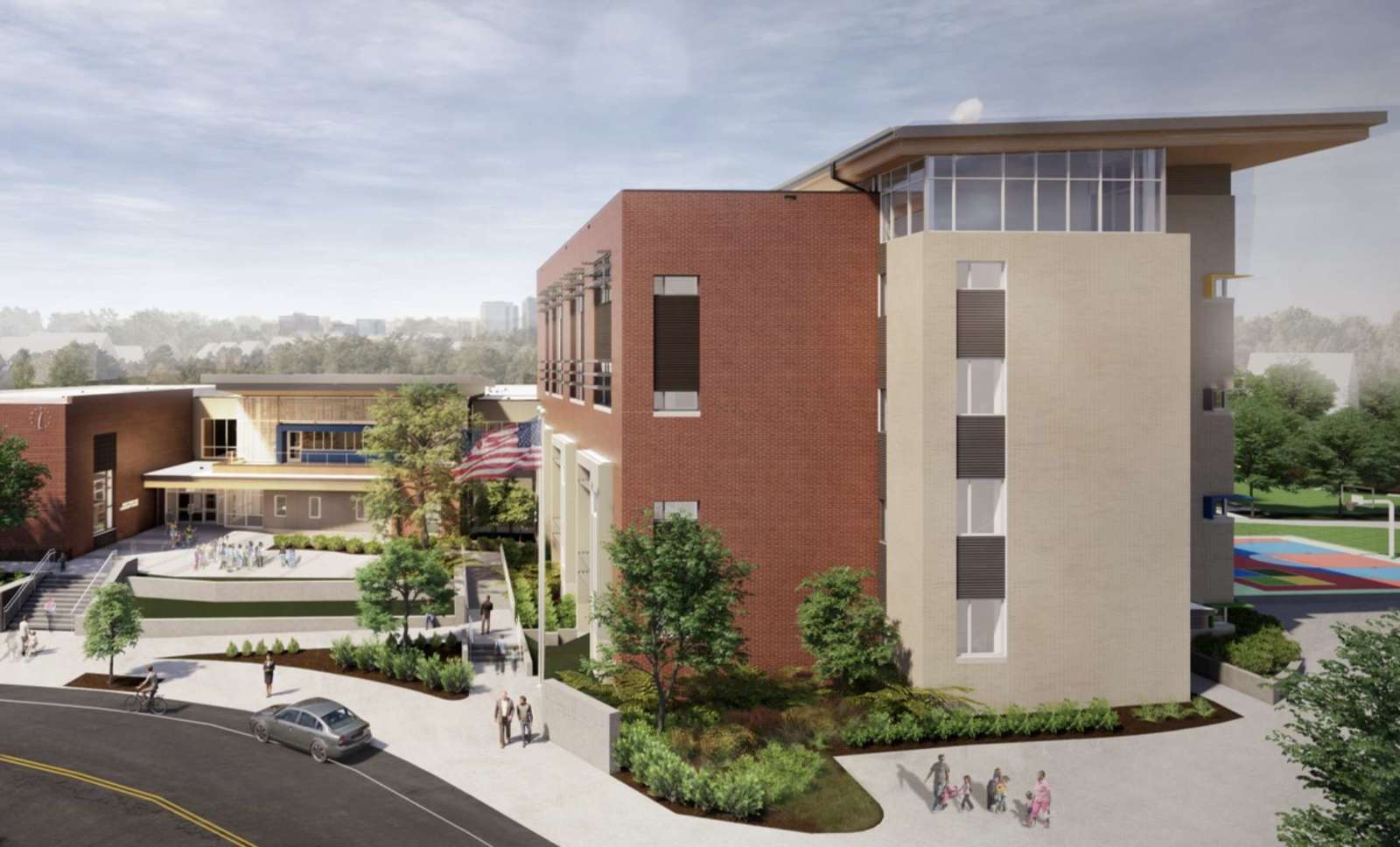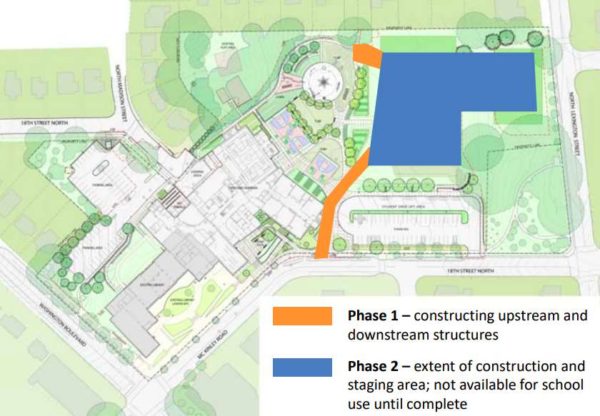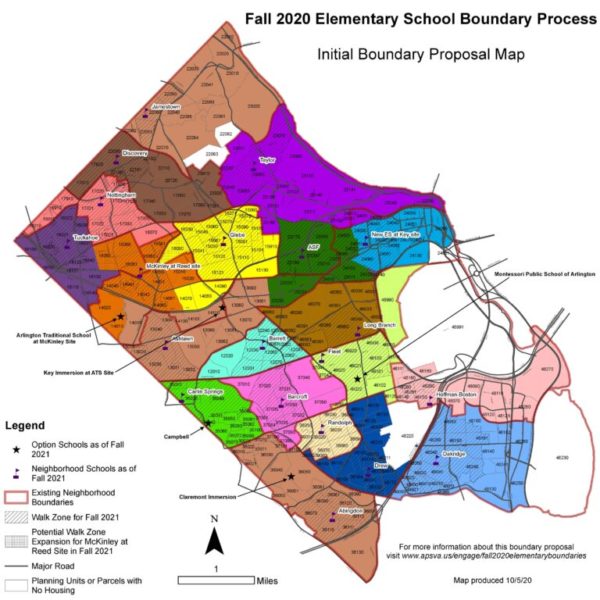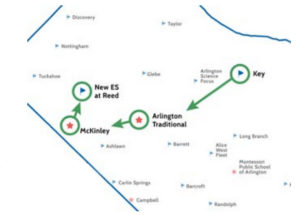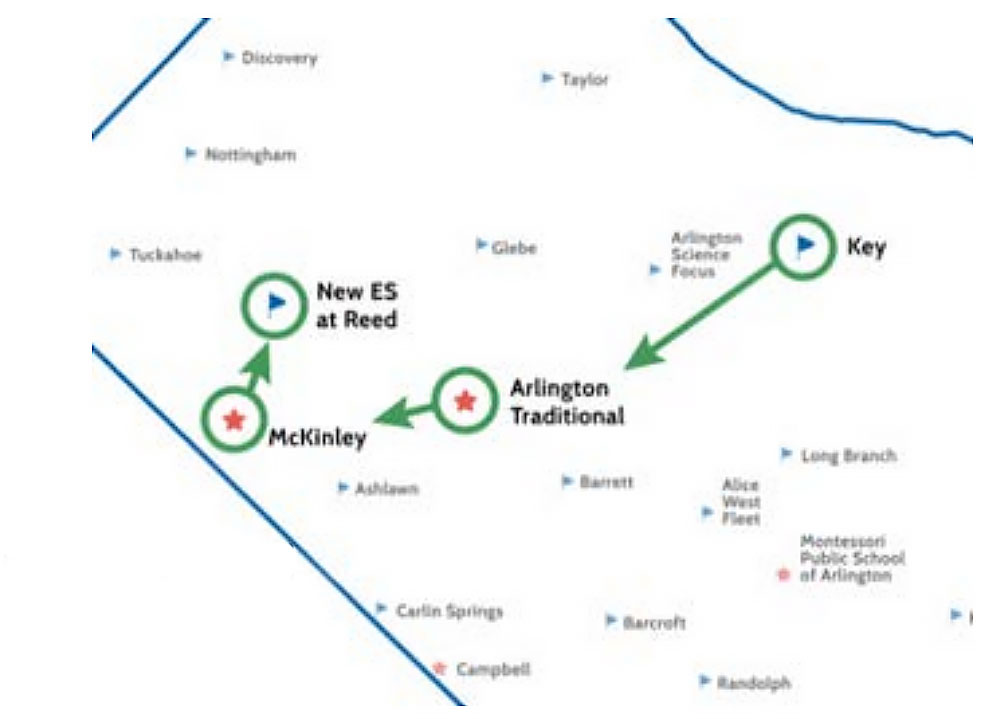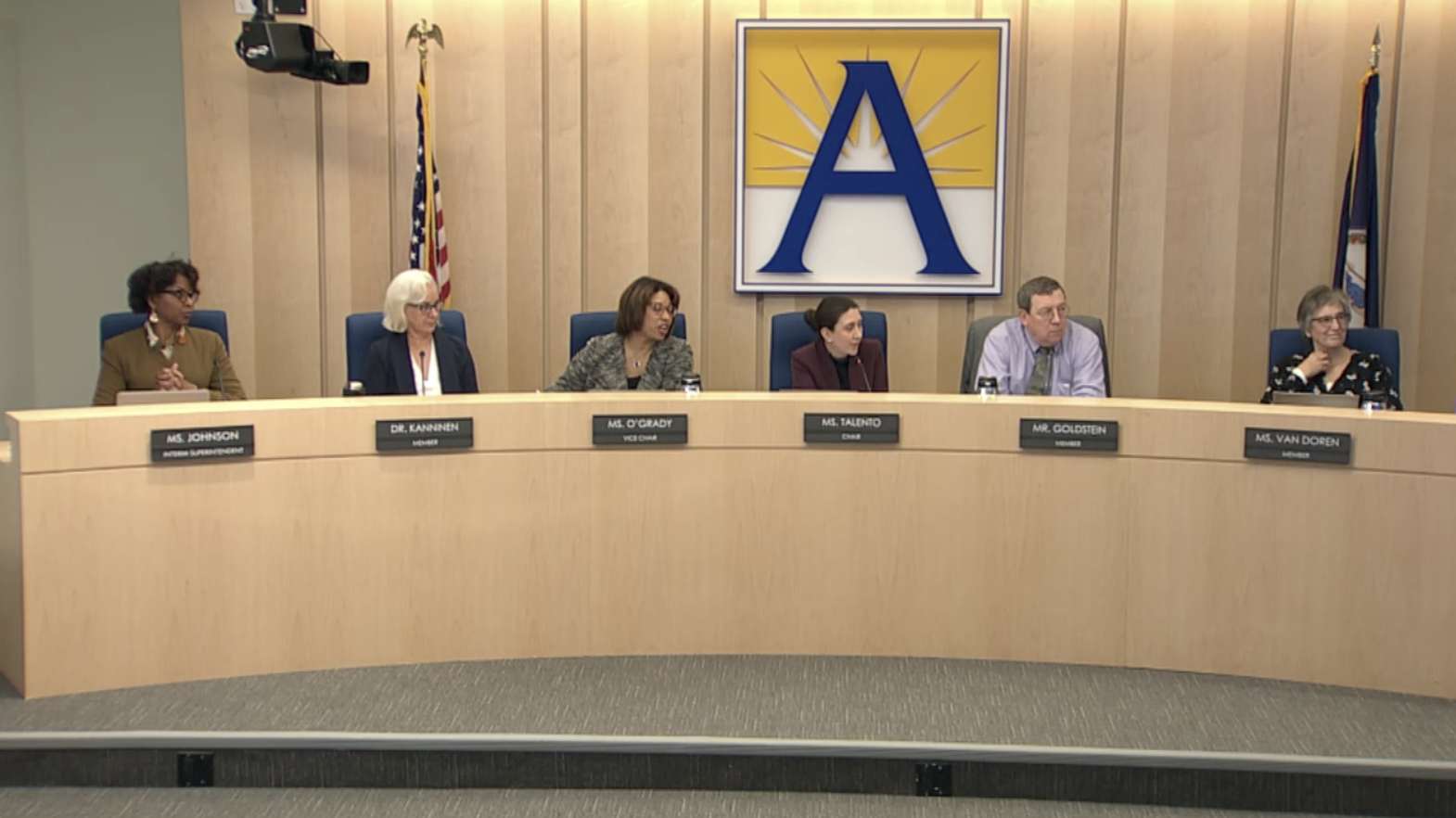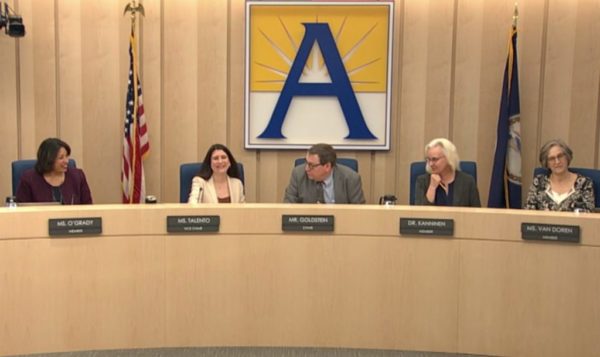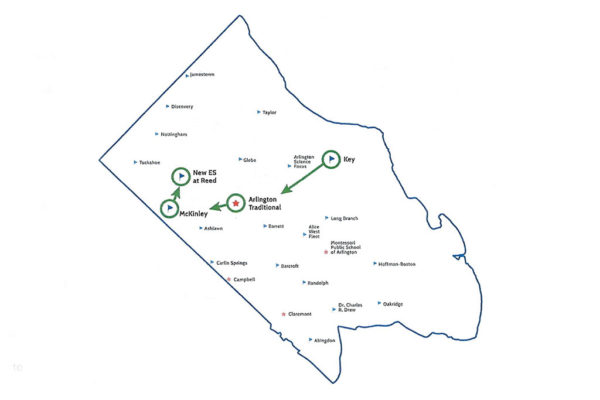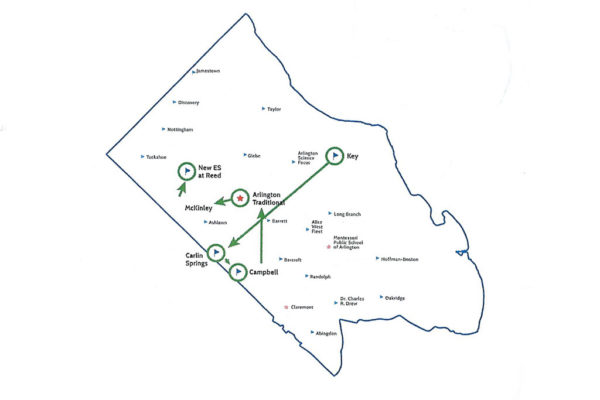A large, $18 million stormwater vault underneath Cardinal Elementary School in the flood-prone Westover neighborhood is now complete.
The vault responds to community concerns that arose after significant flooding washed over Westover in July 2019.
Arlington County will mark the completion of the vault with a ribbon-cutting this Saturday during a neighborhood festival at the school, dubbed Westover Day. Beyond celebrating the completed vault, Westover Day will also mark the completion of the new school building, athletic field and playground with school tours, live music and food trucks.
The 47,000-square-foot vault is part of the county’s strategy, dubbed Flood Resilient Arlington, to mitigate the major impacts of flooding. Located in the Torreyson Run watershed, Westover is one of the communities being prioritized for stormwater upgrades.
The vault is designed to hold just over 4 million gallons of stormwater — “equal to six Olympic swimming pools,” according to the county. Its construction, a joint effort by Arlington County and Arlington Public Schools, took two years and was separated into two phases.
First, underground pipes and junction boxes were installed to divert water from an existing storm sewer beneath the school property to where the newly built vault would be, according to the county website. Then, in December 2021, construction of the vault began. It was substantially completed this June.
A video below shows a timelapse of construction through last December.
The athletic fields atop the stormwater vault were closed for sodding but the county tells ARLnow the work is now complete and the fields open.
The ribbon-cutting for the vault at Cardinal Elementary comes on the heels of another county stormwater improvement project.
On Tuesday, county officials celebrated the transformation of the once sludge-filled Ballston Wetland Park into a more robust stormwater filtration system and wildlife refuge.


